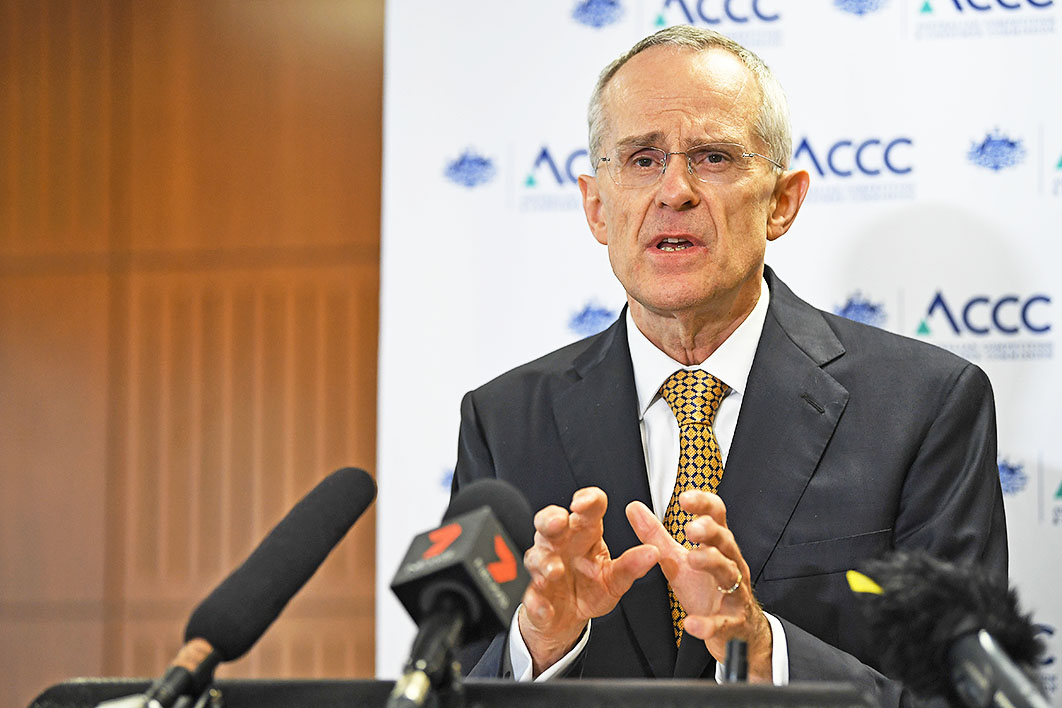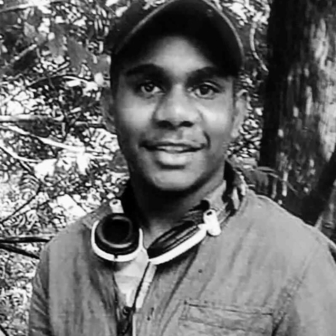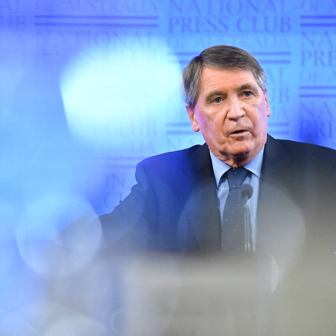For the prosecutors, the jury’s return to court after just a few hours’ deliberation last week wasn’t a good sign. The legal team had used all the time at its disposal during the twelve-week trial to secure Australia’s first criminal-cartel conviction in more than a century. But the jury was about to take a swing at those who had brought the complex case before it.
The jury forewoman responded “not guilty” to each of the eight charges levelled against three defendants: the Mildura-based disability-aid retailer Country Care, its owner and manager Robert Hogan and a former employee, Cameron Harrison. Not a single conviction was secured in a case regarded by most observers as a critical test of the Australian Competition and Consumer Commission’s management of criminal-cartel laws introduced in 2009.
Seen in isolation, the defeat may not seem particularly significant. It may have been important for the ACCC to secure the first-ever jail term for pricing collusion, but the fact that the prosecution took place at all does create a degree of deterrence. Those planning to shake hands over a price-fixing deal in a smoky backroom are now more likely to be aware that, on paper at least, they face jail terms of up to ten years — a penalty that can’t simply be relegated to a footnote in a company’s annual report.
As competition regulators around the world know very well, court setbacks are par for the course. The ACCC prides itself on its success rate, and the fact that this prosecution reached the Federal Court wasn’t such a bad effort for the first criminal-cartel trial since 1910’s Coal Vend case. And the ACCC is adamant the acquittals won’t set back its campaign against the cartels.
Seen in the context of other criminal-cartel prosecutions launched recently, though, the Country Care trial highlights the challenges ahead for both the ACCC and the Commonwealth Director of Public Prosecutions, or CDPP. For the judge, Robert Bromwich, the weakest link in the investigation was a witness who’d been given immunity by the ACCC — in fact, Bromwich’s comments to the jury about the credibility of that witness may well have sounded the death knell for the prosecution case. The result might also cast a shadow over a far more significant trial set to unfold in Sydney next year, targeting ANZ, Deutsche Bank and Citigroup over a 2015 share-underwriting agreement.
Immunity deals are a key part of competition enforcement. Without them, regulators may never uncover cartels that are, by definition, secret. A person or a company involved in an anti-competitive arrangement can approach the ACCC, alert it to the cartel’s existence and apply for immunity from prosecution. The ACCC can offer a guarantee of immunity in return for full cooperation — but the arrangement needs to be embraced by federal prosecutors as they take the matter to court.
Although the Country Care case involved two “immunised” witnesses, the first six of the eight charges related to the testimony of one of them, a Sydney disability-aid retailer by the name of Andrew Cuddihy. Rightly or wrongly, Cuddihy was viewed as valuable to the prosecution’s case because he offered detailed testimony of the allegedly criminal acts that took place in 2014 and 2015 as well as a secret recording of a conversation with Robert Hogan. If there was a smoking gun in this prosecution, the recording was it.
Then the defence lawyers did what they’re paid to do — they took a blowtorch to everything Cuddihy had said and done. They pointed to inconsistencies in his account, built a strong case questioning his motives and dug deep into his communications with the ACCC. Even the secret recording was impugned as an attempt to entrap Hogan, with jurors urged to refer to the recording rather than the transcript (Hogan’s repetition of “yeah” and “yep” wasn’t an acceptance of what Cuddihy was putting forward, they said, but an acknowledgement that he understood the points being made.)
When it came time for the judge to offer his final directions to the jury, he urged extreme caution when dealing with that testimony. His warning was both general — that the evidence of all immunity witnesses needed to be taken with a grain of salt — and remarkably specific about Cuddihy and his motives. For his part, the ACCC’s other immunity witness had been unable to produce clear evidence that Country Care had attempted to set up a price-fixing agreement or had successfully established a cartel — a deficiency that made the jury’s job a lot easier. As it turned out, the jury didn’t need that lock to reach its unanimous verdict.
Immunity witnesses can create serious challenges for any prosecutor taking on a case of this kind before a jury. In Britain, where criminal-cartel offences have been on the books since 2002, the Competition and Markets Authority has struggled to secure convictions in contested cases, with juries particularly reluctant to return guilty verdicts. The role of immunity witnesses has played a part in their deliberations — with some juries failing to grasp why one company or individual was being offered a free pass despite having behaved like the person on trial. If the jury is expected to believe that those on the receiving end of the charges are criminals, then why should it believe the testimony of someone equally criminal who has cut an immunity deal?
Another lesson from Britain and the United States is that juries and competition law can be a tricky mix. There’s no doubt that every member of the Country Care jury would have understood what the alleged price-fixing arrangement was about: two or more companies agreeing on prices to be submitted as part of government tenders. But the case was complicated considerably by what we now know was a perfectly legal working arrangement between Country Care and a network of disability-aid suppliers across regional and metropolitan Australia. The Country Care Group — the loose association of retailers — was essentially a supply and subcontracting relationship, in which the Mildura-based company took responsibility for responding to government tenders and then relied on the network of small businesses to provide, install and maintain the equipment.
Much discussion was devoted to whether this arrangement amounted to a joint venture, which is covered by an exemption in competition law. But it also gave defence lawyers the chance to argue that the ongoing communications between Country Care and the Country Care Group were based on subcontracting arrangements rather than price-fixing. The jury was also told that this type of arrangement had become necessary because the Department of Veterans’ Affairs had made national coverage a prerequisite for a successful bid for government contracts. Defence lawyers said that the Country Care Group was established to allow small businesses in regional areas, with strong links to communities that relied on them for help with disability aids, to get a small slice of government contracts.
The narrative thread — Hogan, a former boilermaker from Mildura determined to improve the quality of equipment for the elderly and infirm, urging small businesses across Australia to join forces in bidding against big players for government tenders — was compelling. The incredibly complex and uncertain question of whether Country Care subcontractors were also competitors made the simple narrative all the more attractive.
More importantly, though, by the end of the trial it was clear that the jury was under considerable strain. The Federal Court had empanelled fourteen jurors — two more than the required twelve — on the assumption that the volatile Covid-19 situation in Melbourne could see some of them drop out. The court bent over backwards to ensure that the jury stayed comfortable and was able to follow what was going on. But by the end of the twelve weeks, three of them, including the original forewoman, had dropped out for either personal or health reasons. Justice Bromwich was concerned, but decided to push ahead with eleven jurors. They just made it to the finish line.
The jurors appeared drained by the experience — and it’s not hard to see why. The prosecutors’ summing up of the case lasted three and a half days, with one dry competition law argument after another delivered with little panache. Had this been directed at a judge, it wouldn’t have mattered. But a jury? I cover this stuff for a living, yet my eyes often found their way to kitten videos streamed onto my phone via the court’s complimentary wi-fi.
Conservative estimates suggest that next year’s ANZ trial will last nine months. And whatever challenges were faced by the Melbourne jury in the Country Care case will be multiplied manyfold, with jury members required to get their head around the complex underwriting arrangements of an ANZ share issue. As for the immunity witness in that case, JPMorgan, it’s hard to see how a jury would view one of the world’s most powerful and lucrative banks — and its posse of well-tailored executives — as particularly sympathetic witnesses.
The case will be an outrageously time-consuming and expensive affair for both the ACCC and the CDPP, and the returns are looking, at best, uncertain. It could also make or break Australia’s criminal-cartel enforcement regime. •
The publication of this article was supported by a grant from the Judith Neilson Institute for Journalism and Ideas.






